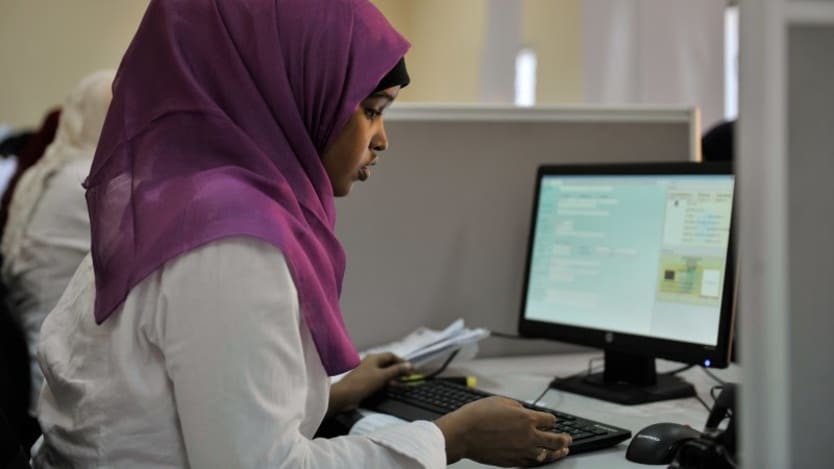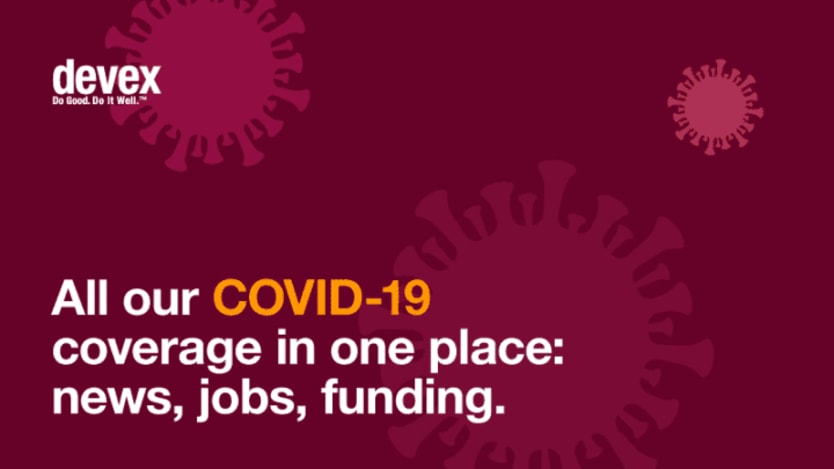
CANBERRA — Even before the world was impacted by COVID-19, digital IDs were a controversial topic of discussion. They were either perceived as a much needed way of allowing identification and access to a range of services for vulnerable groups, that may have had limited or no access to — including banking, purchasing properties, and voting rights. Or as technology that had the ability to infringe on human rights through unnecessary tracking.
With the pandemic creating the need for reduced contact and innovative solutions to the associated economic crisis, how has this discussion changed?
Funding digital IDs in the COVID-19 response
The World Bank is one of the leading funders supporting digital identification as part of the COVID-19 response. In September, it announced a $143 million project to support digital transformation and identity management systems in Madagascar.
“This operation is part of a broader set of country program adjustments prompted by the COVID-19 pandemic,” Marie-Chantal Uwanyiligira, World Bank country manager for Madagascar said on launching the program.
“Streamlining and digitalizing services and improving the identification of citizens can help provide quicker and more efficient services to the population and the private sector and play a critical role to mitigate the effects of future health crisis as well as adapting to climate change.”
Opinion: The case for 'good' digital identity
Three experts weigh in on how to build rigorous digital ID systems that adequately confront the practical and ethical challenges that digital identity presents.
This program in Madagascar is focused on creating an “effective and secure identity management system,” which includes working with the National Civil Registration and Identification Center to provide citizens with a unique identifier number from birth. It is one of a number of digital identification programs that have been announced as a response to COVID-19.
As part of the Mission Billion Challenge, the World Bank offered $150,000 in grant prizes, which in 2020 called for digital solutions to support the pandemic response. Identification was a core challenge component. Winners were announced in October and included Special Olympics Nigeria — whose proposal aimed to utilize its network and enable the 3 million people living with disability in Nigeria to be registered through mobile community services.
Earlier in the year, a $250 million program was announced for Mexico, to facilitate inclusion through a digital ID. “The proposed Project Development Objective ... is to establish a foundational digital ID system in Mexico that will ensure universal and unique identification of individuals to facilitate their access to services and benefits,” World Bank documents stated on the proposed investment.
But despite the investment being promoted as a response to COVID-19, the document also notes the investment identification process, where both governments and the World Bank analyze the role of the project in meeting Mexico’s development strategy, concluded in November 2019. This is an existing project rebadged as a pandemic investment.
How COVID is changing the conversation
This World Bank has been an early investor and promoter of digital identification. New programs in response to COVID-19 expand upon the Identification for Development Initiative, launched in 2014 with the objective of helping countries transition toward digital identification to support an estimated 1 billion people globally without a form of identification. Partners supporting this work include Australia’s Department of Foreign Affairs and Trade and the Bill & Melinda Gates Foundation.
“Now is the time for accelerated action to get every person a digital ID that enables their access to services and ensures their privacy.”
— Mari Pangestu, managing director for development policy and partnerships, World BankThe global pandemic’s impact on economic growth risks making the most vulnerable communities even more susceptible to global shocks. This is what has enabled the conversation surrounding digital identification to become an urgent push for funding and action.
“Now is the time for accelerated action to get every person a digital ID that enables their access to services and ensures their privacy, and to have all countries prepared not only to respond better to the next crisis but to take advantage of the new opportunities being created by the digital economy,” Mari Pangestu, World Bank managing director for development policy and partnerships said in announcing the Mission Billion Challenge winners.
But the conversation surrounding digital identification in response to COVID-19 is not just about promoting or reallocating existing initiatives. Other funding responses to COVID-19 show that low- and middle-income countries have seen a spike in demand for digital services — and a digital ID can support the demand.
“The COVID-19 crisis has also brought new needs for digital government services and more demand on existing services,” a July tender request by the United Nations Development Programme for digital transformation services reads. “Some countries recorded an increase in the usage of online services such as digital ID and digital signature, due to the spikes in applications for unemployment and other social benefits.”
As part of business development services in Ghana, an expression of interest by the African Development Bank also highlighted the need for support for “transformative projects that will significantly reduce poverty and bring inclusive sustainable economic growth” — especially in response to COVID-19. Among the areas of support required to strengthen capacity were digital ID and facial recognition.
The challenges: Security and misinformation
Targeting false information on COVID-19: What the funding data shows
Targeting misinformation and disinformation surrounding COVID-19 is a challenge. While technology is spreading false information in urban areas, remote communities face their own challenges.
Despite economic and service environments that appear more open to digital identity in response to COVID-19, challenges remain. Data security and ensuring privacy is protected remain the major risks, especially for countries expanding digital services at a rapid pace.
Among the responses is a £4.3 million ($5.6 million) Gates Foundation investment into research and development by the Alan Turing Institute “to enhance the privacy and security of national-scale digital identity systems.” Legislation and robust frameworks that ensure data is used correctly are also required, which remains a challenge even for high-income economies such as Australia.
Yet COVID-19 has created a new challenge. As a leading advocate for digital IDs, the Gates Foundation became central in conspiracy theories suggesting the organization was supporting a program to microchip people globally for monitoring and control. This disinformation spread rapidly through social media, and created a new hurdle for the digital ID debate and its role in supporting the global economic market after COVID-19 .









